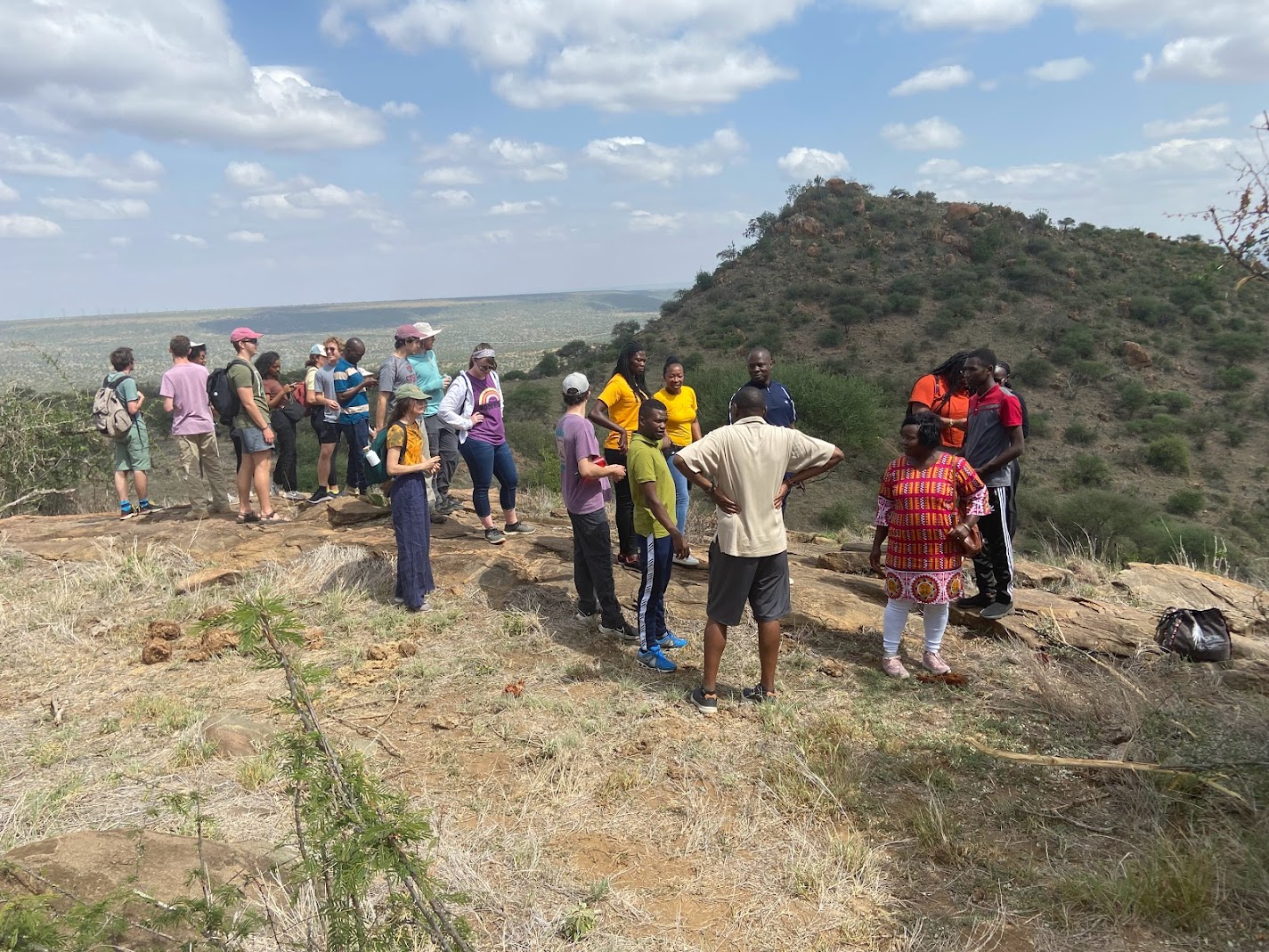A Global Seminar Brings to Life the Culture, Politics and Language of Kenya

The most rigorous coursework can only take students so far in the confines of a classroom — especially when they’re learning about cultures on the other side of the globe. This summer, a group of Princeton students explored contemporary life in Kenya, complementing their studies with six weeks of immersive travel from the country’s capital to coastal villages to the birthplace of Homo sapiens.
“When we’re in Princeton, we are reading about places, about people, about historical events without much tangible experience that makes you interact with people and find out how those theories affect those who are living today,” says instructor Mahiri Mwita, a lecturer in the Princeton Institute for International and Regional Studies (PIIRS). “I want students not only to read about Kenya, but to experience and touch and interact with material culture.”
The PIIRS Summer 2022 Global Seminar “Kenya: Evolution of the Capital of Western Capitalism in Eastern Africa” allowed students to see up close the ways relations with the West have shaped Kenya’s culture, economy and political system. Students learned about the country’s importance to archeological, evolutionary and anthropological research as the point of origin for modern humans; postcolonial Kenya’s role as a capitalist buffer against socialist and non-Western ideologies in Africa during the Cold War; and its geopolitical status as a site of Western intervention against extremist movements in the Middle East post-9/11.
 Students on a hilltop in Kenya listen to a lecture. Photo curtesy of Mahiri Mwita
Students on a hilltop in Kenya listen to a lecture. Photo curtesy of Mahiri Mwita
Students said this summer’s session felt even more rewarding after two years of pandemic restrictions. “One of the reasons I applied to Princeton was because they sponsored a lot of international travel, and that was something I wanted to do,” says Katie Rohrbaugh ’24, a history major pursuing a certificate in environmental studies.
Maseno University in Kisumu served as the students’ home base, but their itinerary took them all over the country. At Princeton’s Mpala Research Center and the Maasai Mara National Reserve, they studied the impact of postcolonial conservation efforts on indigenous peoples.
“Conservancies have a very complicated history,” says Rohrbaugh. “It’s important to have a more academic and educational lens that isn't normally provided when you travel and be mindful of that. I grew in that area on this trip more than I would have if I had gone on a safari like most tourists do.”
Students also learned about humanity’s African origins at the Turkana Basin Institute, the site of some of our most important archaeological discoveries. The course concluded with an exploration of the Swahili Coast, the center of Kenya’s precolonial civilizations and trade as well as the Swahili language and culture.
The multidisciplinary curriculum allowed Patrick Newcombe ’25 to explore several academic areas. “I am interested in ecology, politics, international relations, economics and journalism, especially photojournalism, and this Global Seminar let me pursue so many of them at once,” he says. “I met so many different people in so many different walks of life, including papyrus harvesters, basket weavers, sand harvesters and fishermen.”
The summer session combined Global Seminar students, who received one hour of Swahili instruction daily, with those studying Swahili exclusively. They attended separate classes but traveled, ate, socialized and practiced the language together.
Learning Swahili in Kenya allowed students to develop their skills in a way that would be impossible on campus. “When you are in Kenya, and you attempt to use your little Swahili and you see how people are responding to you; they are lighting up and feeling like you’re one of them,” says Mwita. “It gives you some sense of ownership of what we are learning better than anything you can find in class.”
Melat Bekele ’24, a politics major pursuing a certificate in African studies, came to Kenya as a Swahili learner. “I’m Ethiopian, and I wanted to learn another East African language on top of Amharic, which I speak at home,” she says. “The way the class was taught was really important to me. It was very much a communication style instead of just learning things linguistically.” After her experience, she’s excited to use Swahili in her future career and hopes to live in the region one day.
One of the trip’s most significant takeaways for Bekele was the chance to connect with people whose perspectives and experiences were so different from her own. “I learned that life is more than getting your degree and building connections in a school or professional setting,” she says. “I really appreciated making new relationships with people across the world who are living completely differently from us and have a different outlook on life.”
For Mwita, one of the most important aspects of introducing Princeton students to his home country is that the experience changes not only how they think about Kenya but also how they understand themselves and their identities as Americans.
“They get to learn, to listen, to talk to people with a different worldview and get to appreciate the way other people view themselves — and the way other people view them as Americans and view America — in a way that you cannot get when you don't travel abroad,” says Mwita. “There is no way of unknowing that. It becomes part of their personality, part of their scholarly character. It starts to influence what they are studying, the dimensions they want to take in life and where they want to go in the future.”
